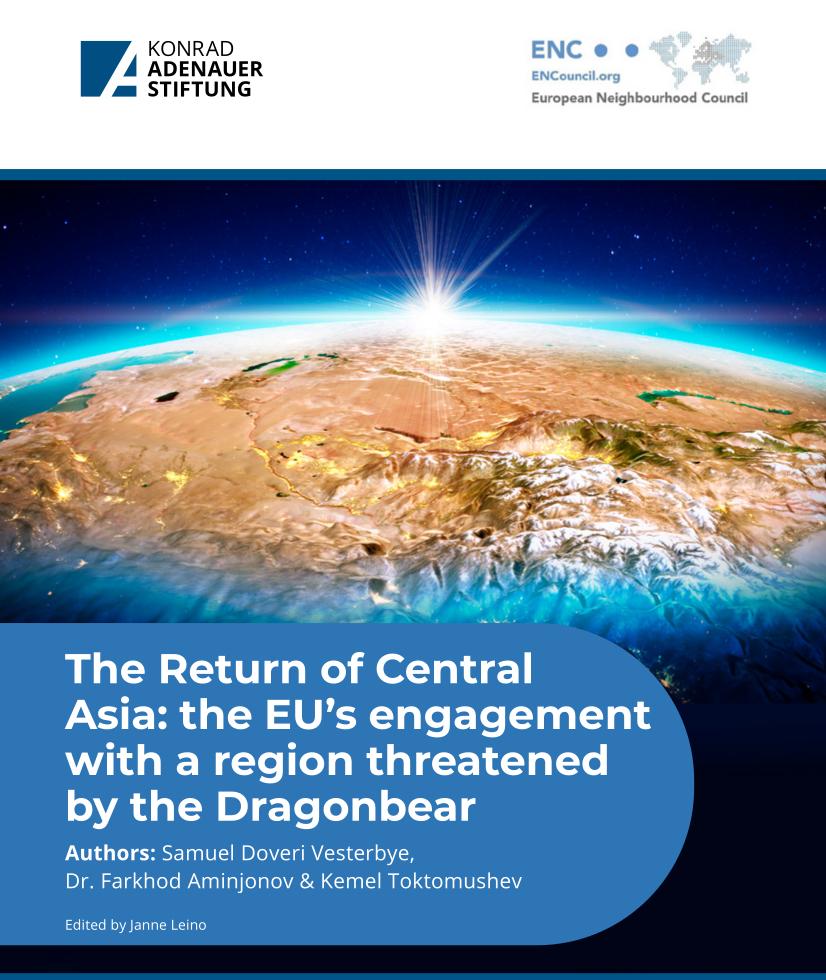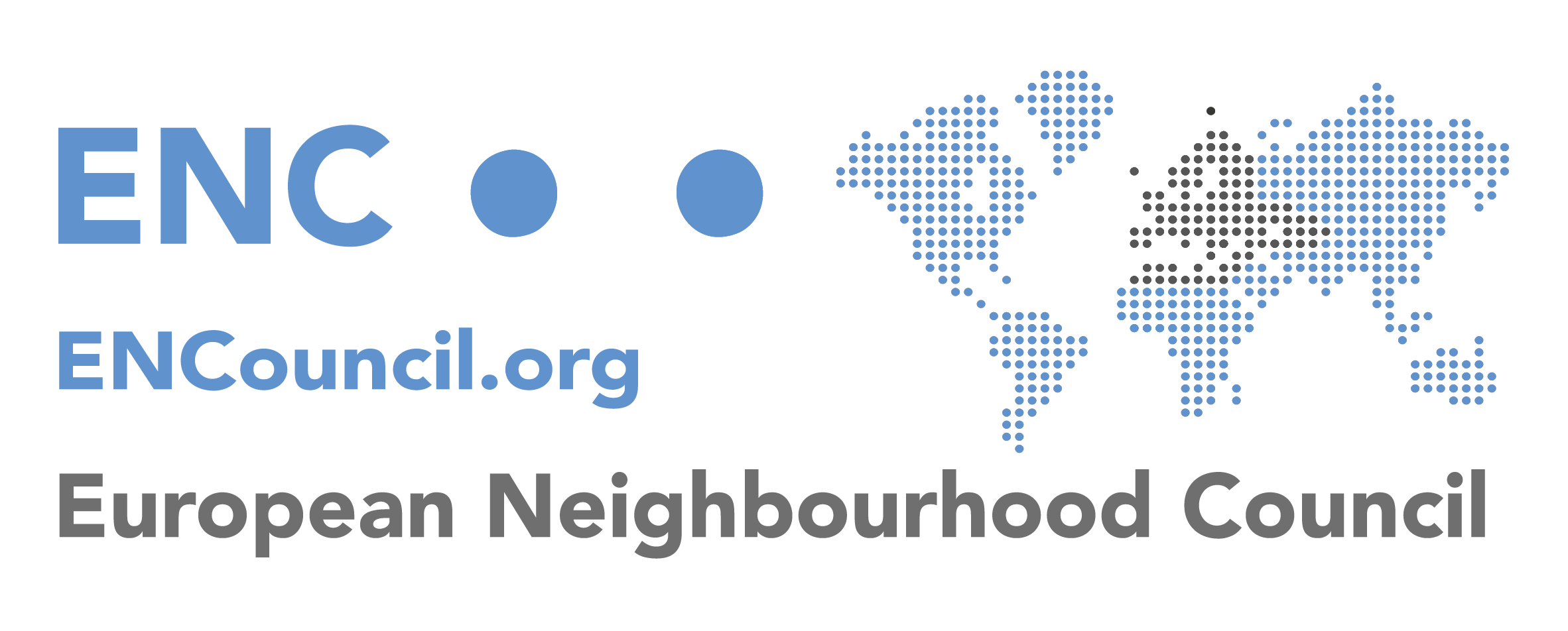The Return of Central Asia: The EU’s engagement with a region threatened by the Dragonbear
The European Neighbourhood Council released a new study titled “The Return of Central Asia: the EU’s engagement with a region threatened by the Dragonbear” together with Konrad-Adenauer-Stiftung (KAS) | Multinational Development Policy Dialogue (MDPD) Brussels.
This report is written by Samuel Doveri Vesterbye (ENC Managing Director), Farkhod Aminjonov (Assistant Professor at National Defence College), Kemel Toktomushev (Senior Research Fellow at UCA’s Institute of Public Policy and Administration and Assistant Professor of Political Science at UCA’s School of Arts and Sciences) and edited by Janne Leino (KAS Programme Manager Foreign and Security Policy and Multilateral Issues). The foreword of the report is written by Michael Gahler, Member of the European Parliament, Coordinator for Foreign Affairs, European People´s Party Group in the European Parliament.
A renewed interest in Central Asia has emerged as a result of the Russian aggression in Ukraine, Europe’s reliance on fossil resources, and trade routes to Asia. Central Asia has been regarded as a secondary priority in European Union (EU) policy circles. Despite the region’s geographic location between Asia and Europe, limited EU funding has been allocated towards the five Central Asian Republics. This paradigm has changed since Russia’s invasion of Ukraine in 2022. Today, Central Asia is capable of providing the EU with much-needed energy diversification, rare earths, new markets and security partnerships. This study looks at how the European Union and its Member states should engage with the region, where both China and Russia have already established a strong presence.
The main findings of the study include:
- The EU should concentrate on closer cooperation with its partners in the sense of a “Team Europe” in order to provide Central Asia with an alternative to the growing Russian and Chinese influence.
- The EU and its member states should have an understanding of the regional security environment of Central Asia to achieve long-term success and to be able to implement cooperation in a goal-oriented manner.
- It’s important to combat the manipulation of foreign information and to increase funding for enhancing media literacy in Central Asia in order to guarantee a stable starting point for political and economic activity.

Read the full study here.
Read the Flipbook version here.


